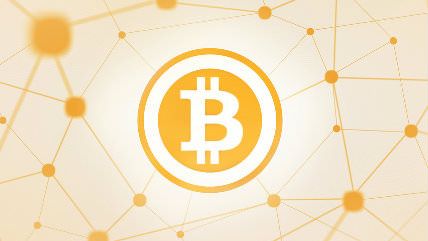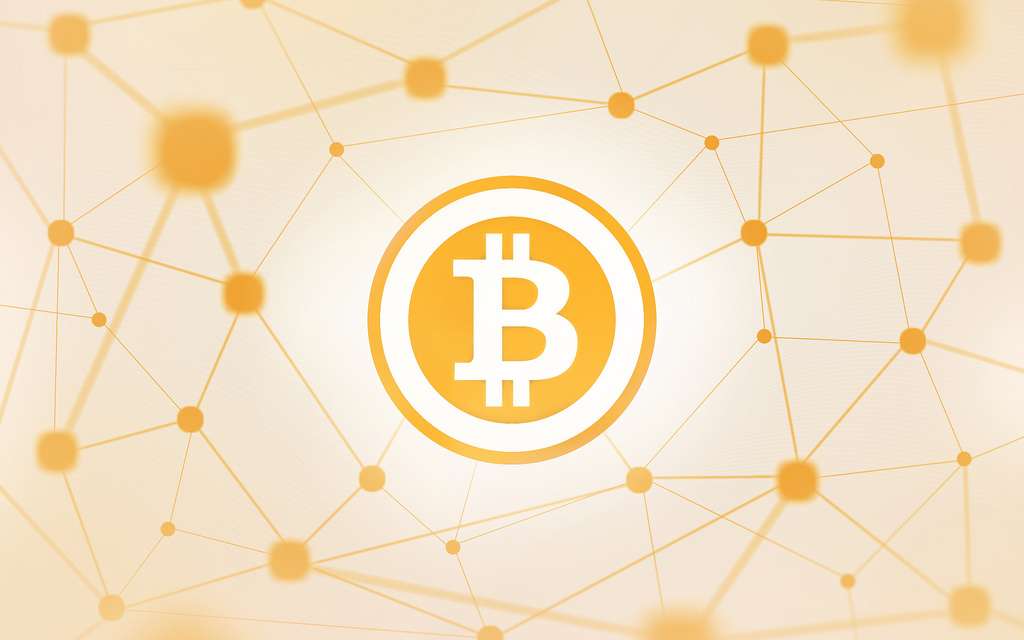Bitcoin's Long-Term Viability Threatened by Block Size Limits
If unaddressed, an arbitrary protocol quirk implemented by Bitcoin creator Satoshi Nakamoto could soon undermine the scalability and long-term viability of the cryptocurrency.


The popular cryptocurrency Bitcoin is fast approaching a critical technical challenge that will fundamentally shape the course of its future. If unaddressed, an arbitrary protocol quirk implemented by Bitcoin creator Satoshi Nakamoto as a short-term security measure could soon undermine Bitcoin's scalability, usability, and even its long-term viability—although, as always, opinions differ. It's a bit of a complex issue, but one that Bitcoin enthusiasts should pay attention to. The final outcome of this Bitcoin block size limit debate will affect how easy it will be to use Bitcoin for common everyday transactions and complex experimental transfers alike.
Bitcoin replaces third-party payment processing with a rule-bound distributed ledger of all transactions, called the blockchain, which is maintained by profit-seeking Bitcoin miners and stored and shared by volunteer nodes. When you send a transaction over the Bitcoin network, thousands of computers running the Bitcoin mining software are quietly competing to process your transfer and others as part of a new block, or ledger page, that is then stored as part of the full blockchain by thousands of computers operating bitcoin nodes. The miner first able to validate and seal a new block of transactions will receive a set amount of freshly-minted bitcoins, plus any user-set transaction fees.
Bitcoin block sizes are determined in the same way as Bitcoin prices: by the market. Bitcoin users want to utilize a fee that will attract miners to process their transfer quickly, while miners want to maximize their transaction fee and net reward by prioritizing certain block sizes and compositions. Aggregate mining supply interacts with aggregate transaction demand and block size equilibria emerge.
But an arbitrary protocol rule prohibiting blocks exceeding one megabyte in size from being added to the blockchain could now strain Bitcoin's potential as global payment system. Miners are currently forbidden from adding blocks bigger than one megabyte, even if it is profitable to do so. Because the protocol is designed to add one new block to the blockchain every ten minutes, this size limit imposes a theoretical cap on the total number of possible Bitcoin transactions per unit of time—and could make it harder to compete against entrenched payment systems like Visa and PayPal that can manage millions of daily transactions with ease.
There is no deep philosophical or technical reason for the current limit. Satoshi instituted the one megabyte rule as a temporary anti-spam measure in Bitcoin's early days. It wasn't a problem for most of Bitcoin's history, since the "market for block size" tended to be far below Satoshi's capricious limit—like a price ceiling set far above the prevailing market norm. Satoshi and other developers expected that a higher block size limit would be gradually phased in as the network matured and block sizes slowly approached the limit, which is projected to occur in late 2016.
What happens then? The same thing that always happens when demand exceeds an artificially limited supply: the price will increase. In this case, it's the "price" to send a transaction; Bitcoin users would pay more in either time or transaction fees.
Users unable or unwilling to entice miners with generous transaction fees may find themselves experiencing longer and longer confirmation times. The Bitcoin "haves," on the other hand, could simply pay for priority blockchain access. Bitcoin miners, meanwhile, would enjoy higher-than-market returns for lower-than-competitive service. It's quite possible that only large, perhaps institutional, transactions would remain cost-effective in such a market. Or perhaps, its core value proposition undermined, Bitcoin would slowly die out.
A number of proposals have been floated to address the impending limit. Two of the most public-facing developers, Gavin Andresen and Mike Hearn, support increasing the limit to 20 megabytes, with the option of increasing it further in the future as necessary. Others have suggested that gradual block size increases could be overseen by a simple rule, similar to how the Bitcoin supply schedule is programmed to automatically increase.
Fundamental changes to the Bitcoin protocol require a "hard fork" with which all Bitcoin users and miners must agree to upgrade. Gathering such a strict consensus is even harder than it sounds.
Some of the most Bitcoin-literate developers fear that unlimited block sizes could harm network decentralization and security. If block sizes grow large enough and the cost of storing the full blockchain becomes too high, then many volunteer nodes that broadcast the blockchain without compensation may drop out of the network, forcing users to trust the stewardship of only a handful of deep-pocketed server farmers. Mining, too, could be consolidated in the hands of a few power pools. However, these very real problems might persist even if the one megabyte limit is never changed.
The stakes for Bitcoin are clearly high, and few envy the Bitcoin developers right now. The complex interactions that fuel the Bitcoin network are critical to conserve, easy to inadvertently sabotage, and difficult to anticipate. But the great block size debate highlights the inescapable political element lurking in the technical constitution of Bitcoin. Once mainly technological questions of scaling and centralization will now translate more obviously to social questions of access and inequality with each passing year.
Editor's Note: As of February 29, 2024, commenting privileges on reason.com posts are limited to Reason Plus subscribers. Past commenters are grandfathered in for a temporary period. Subscribe here to preserve your ability to comment. Your Reason Plus subscription also gives you an ad-free version of reason.com, along with full access to the digital edition and archives of Reason magazine. We request that comments be civil and on-topic. We do not moderate or assume any responsibility for comments, which are owned by the readers who post them. Comments do not represent the views of reason.com or Reason Foundation. We reserve the right to delete any comment and ban commenters for any reason at any time. Comments may only be edited within 5 minutes of posting. Report abuses.
Please to post comments


So.... What up?
Things are awfully quiet here today
It must be the weather. A little chilling effect.
I knew I felt a draft!
The first rule of censor club is [deleted]
The first rule of censor club is [deleted]
The first rule of censor club is [deleted]
First order of business for the moderator: take care of the squirrels
The first rule of subpoena club is don't subpoena about subpoena club.
If the 20 megabyte cap is too controversial, why not just make a more modest change like 10 or even 5 megabytes? That way, Bitcoin will have more time to find alternative ways of scaling. Also, the ASICS used for mining will have more time to improve their computing power. If it's not enough, they can always raise it again.
Oh my gerschk, it's way too early in the a.m. to be reading this. Was it about money 'n stuff?
Hopefully, we'll see a migration from Bitcoin to Darkcoin/Dash or something as secure in the near future. I always saw Bitcoin as the "pieces of eight" that would evolve into something more as cryptocurrency caught on.
I would say 'hoped' or 'wondered' rather than 'saw'... but agreed. The line, "Or perhaps, its core value proposition undermined, Bitcoin would slowly die out." struck me as needing a "yet again" somewhere. It's core values have been undermined eight ways to Sunday, that's for sure.
Not they haven't. Stop repeating this bullshit please.
Could be...
I am most interested in Maidsafe and Storj.
Myself, I've glommed on to Nxt.
http://nxt.org/
https://nxtforum.org/
^^^Friendly folks therein.
Nxt's Freemarket was mentioned in an earlier REASON article in the "Don't Tread On My Internet!" issue.
http://reason.com/archives/201.....ypherpunks
Ah, bitcoin... the Esperanto of currencies.
+1 Bill Shatner!
Correct me if I'm wrong, but isn't it possible that this dynamic could entice more people to become bitcoin miners, and with more miners looking to process transactions, wouldn't that help offset the longer wait times, as well as keep transfaction from increasing, except for an intitial increase until more miners jump into the game? IOW, wouldn't an increase in supply of miners competing to process transactions offset the negative effects?
Yeah, that's the supply/demand explanation. Most people don't understand what that means, though.
In general, people only see the short term problems with a "shock" and forget that the market corrects in the long term.
Once more around, pal. Its all pops and buzzes from here.
Google pay 97$ per hour my last pay check was $8500 working 1o hours a week online. My younger brother friend has been averaging 12k for months now and he works about 22 hours a week. I cant believe how easy it was once I tried it out.
This is wha- I do...... ?????? http://www.netcash5.com
Start making cash right now... Get more time with your family by doing jobs that only require for you to have a computer and an internet access and you can have that at your home. Start bringing up to $8596 a month. I've started this job and I've never been happier and now I am sharing it with you, so you can try it too. You can check it out here...
http://www.worktoday7.com
How To Buy OmiseGo in India
How To Buy Ripple in India
How To Buy Stellar In India
How To Buy Tron In India
How To Buy Verge in India
How To Buy Zcash in India